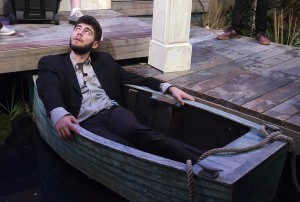When I was teaching college, I used to share William Pastille’s 1998 commencement address with my favorite classes. (Yes, I had favorites but didn’t play them. Some groups of people who come together just jell better.) Mr. Pastille was a tutor of my sister’s at St. John’s College in Annapolis, and his speech was excerpted on All Things Considered.
At St. John’s, “tutor” was the name given to those called “professor” elsewhere. At The Clearwater School, whence my son graduates today, having spent his entire K-12 years, those who would elsewhere be called teachers are “staff.” In this different name is the difference between talking and listening, between setting the agenda and following the agenda, between seeing oneself as separate in one’s amazing and powerful knowledge and stepping out from behind the curtain, human-sized.
Mr. Pastille gave a speech about the choice between Love and Strife. Clearwater kids understand a lot about working through strife, since they are trusted to create and debate and enforce the school rules without an authority figure stepping in. If a staff steps in, it is because they are invited to mediate, or because one of the parties involved in the strife or a witness to it sees a need — or even because they have senses of their own and make a judgment that they could contribute. But they are not first responders, so the students at Clearwater get experience working through conflict.
Clearwater kids also understand a lot about love. The way they get to know each other intimately, over time, through hours of talk and play, is always astounding to me. They feel intensely toward each other and express their feelings through a deep knowledge of each individual’s strengths and weaknesses. For better and worse, just like in life.
Whenever I read Mr. Pastille’s speech, it brings me goosebumps. Toward the end, he says
If we can learn to love the Now, which is to live fully in the present that is always with us, then the unifying force of Love will always be close at hand to shield us from the divisive force of Strife. And we are already prepared halfway, because we know the heart of the Now, we know the twofold feeling of melancholy and expectancy. To make a beginning, we must carry the memory of that feeling with us at all times; we must cultivate that feeling until the poignancy and fragility of the moment swells in our hearts, catches in our throats, brings tears to our eyes.
The feeling he describes, the feeling of commencement, which is both beginning and ending and ever-present now, is the feeling I get when I hear Pomp and Circumstance. I don’t think I’ll hear it today (alternative school, you know), but I’ll hum it in my head when I see my boy receive his diploma in front of a roomful of people who have watched him grow for years and years, a collective multiple lifetime.

